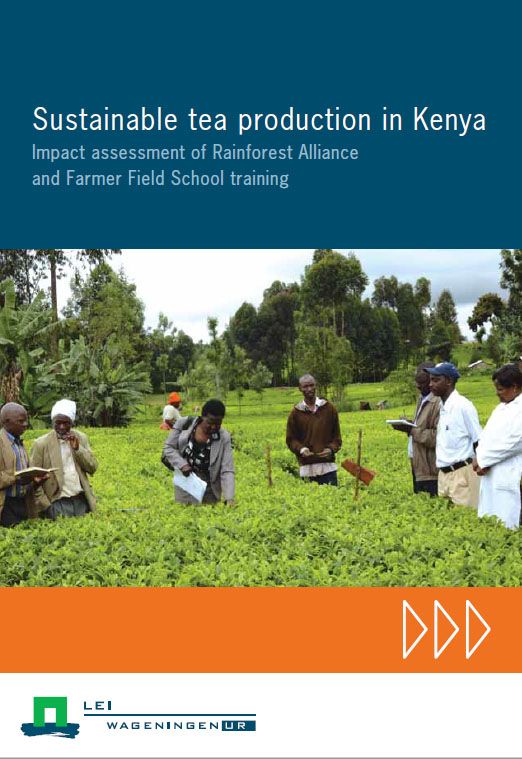Sustainable Tea Production in Kenya: Impact Assessment of Rainforest Alliance and Farmer Field School Training
Wageningen University evaluated different training models used by the Kenya Tea Development Agency (KTDA) to enhance sustainability of tea farming practices: Farmer Field Schools training (FFS) and Rainforest Alliance (RA) training and certification. Data was collected to track the impact of both training models on knowledge levels, implementation of GAPs, production, income and livelihood. This impact assessment used the difference in difference design. Three treatment groups were analyzed: the group that received both RA and FFS training, the group that had received only RA training and the group that had received only FFS training. These were compared to a control-group of farmers who did not receive any training.
Both the FFS and the RA training had a positive impact on the farmers' knowledge levels on good agricultural practices (GAPs). All trained groups had a higher level of knowledge than the non-trained group, with the RA + FFS training group having the highest level of knowledge increase. Both RA and FFS training also had a positive impact on the sharing of knowledge between farmers. Training activities, especially the RA training activities, had a significantly positive impact on the increase in the application of environmental GAPs. Training activities, especially the FFS training activities, had a significantly positive impact on the implementation of social practices.
An unexpected (negative) outcome is that the increase of net income was larger for the comparison group than for the group with only RA training, although the group with only RA training has a higher productivity increase. One possible explanation is that the RA trained group faced higher labour costs (e.g. for weeding). Another explanation could be that RA training has more focus on ‘environmental’ issues, such that farmers may have undertaken actions that decreased the number of bushes on their land.
An unexpected (positive) outcome is that farmers who received training increased their income from other crops than tea. The knowledge of GAPs may have spilled over to other agricultural activities of the farmers.
